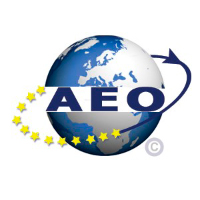What is the INTRASTAT Declaration?
If your company engages in business transactions with EU countries, you will surely have heard mention of the INTRASTAT Declaration.
However, do you understand its actual scope and its essential purpose? This article not only aims to provide a clearer picture of this obligation, but also seeks to unravel the layers of complexity that may arise when dealing with it.
The ultimate goal is not only to comply with tax and statistical obligations, but to do so in an informed and uncomplicated manner, providing a practical guide for all companies involved in trade within the European Union.
What is the INTRASTAT Declaration?
The INTRASTAT Declaration is a report that collects data on trade in goods between EU Member States.
It is a statistical obligation that replaced customs declarations when the Single Market was created in 1993 and borders between EU countries were eliminated.
The purpose of the INTRASTAT Declaration is to obtain information on the movement of goods within the EU, both those sent to and received from other Member States. This information is useful for economic and trade policy-making and for analysing market trends.
How to file the INTRASTAT return?
The INTRASTAT return is filed monthly, using an electronic form sent through the Tax Agency’s Electronic Headquarters. The following details must be indicated on this form:
- Tax identification number (NIF) of the reporting company.
- Period to which the declaration refers (month and year).
- Type of flow (dispatch or arrival).
- Country of origin or destination of the goods.
- Statistical procedure applicable (general or simplified).
- CN8 code of the goods, which classifies the goods according to their nature and characteristics.
- Net weight of the cargo, measured in units of kilograms.
- Statistical value of the goods, presented in euro currency.
- The mode of transport used to send or receive the goods.
- The Spanish province of origin or destination of the goods.
In some cases, additional data are required, such as the country of origin or actual provenance of the goods, the country code of the intra-Community supplier or customer, or the code of the type of commercial transaction.
The deadline for submitting the declaration is from the first working day of the month following the month to which the data relate until the 12th of that month. If the 12th is a public holiday, the deadline is extended to the next working day.
For example, the return for January 2022 can be filed from 1 February until 14 February, which is the first working day after the 12th.
Filing the INTRASTAT return is compulsory and failure to do so carries penalties. These usually range from financial penalties to the temporary suspension of intra-Community transactions.
Who is obliged to file the INTRASTAT Declaration?
Not all companies that carry out intra-Community trade transactions are obliged to file the INTRASTAT Declaration.
Only those whose total annual value of goods sent to or received from other Member States exceeds thresholds established by each country are required to do so.
Shipments
For dispatches (shipments) of goods to other EU countries: EUR 400.000.
Receipts
For arrivals (receipts) of goods from other EU countries: EUR 400.000.
These thresholds are applied separately for each type of operation and are calculated by adding the value of the goods corresponding to the previous year.
If any of the thresholds is exceeded, the INTRASTAT Declaration must be filed from the first month of the following year and throughout the year, even if the monthly value is below the threshold.
For example, if a Spanish company sent goods to other EU countries for a total value of 450,000 euros in 2021, it must file the INTRASTAT Declaration for its shipments throughout 2022, even if in some months it does not exceed 400,000 euros.
Categories of INTRASTAT Declarations
INTRASTAT Declarations are exclusively divided into four categories:

Normal and Simplified Declaration

Anulatory Declaration

Declaration without operations

Statement of Amendment
Categorías de Declaraciones INTRASTAT
Las Declaraciones INTRASTAT se dividen exclusivamente en cuatro categorías:

Normal and Simplified Declaration
This category of INTRASTAT Declaration is compulsory for those responsible for supplying information related to entry and dispatch operations. The Community Regulation allows the possibility of establishing a threshold for using a simplified declaration model in the event that certain limits are not reached, although this aspect is not contemplated in current Spanish statistical regulations.

Anulatory Declaration
An Anulatory Declaration is made when the person responsible for the provision of information deletes a previously submitted declaration.

Declaration without operations
In the case of the No Transaction Declaration, the person responsible for providing information declares that he/she has not carried out any intra-Community transactions of incoming or outgoing goods during the reference period.

Statement of Amendment
The Amending Declaration modifies one or more items previously declared or introduces new items in a previous declaration. When making this declaration, reference should be made to the declaration being rectified, specifying the period, flow and number of declarations, as well as the number of items being rectified. Only the amended boxes should be completed, leaving the others blank. In case of adding more items, start with the item number following and consecutive to the one to be amended. Alternatively, a supplementary return can be filed for those new items that were not entered in the previous return, if this is easier for the taxpayer.
Navigating the Waters of INTRASTAT with Confidence
The INTRASTAT Declaration is a statistical obligation that must be fulfilled by companies that carry out intra-Community trade operations for a value above certain thresholds established by each country.
It is a report that collects data on the movement of goods within the EU for economic and commercial purposes.
The INTRASTAT Declaration is filed monthly through the INTRASTAT system, which is a computer application managed by the Tax Agency.
Failure to comply with the INTRASTAT Declaration entails penalties, so it is important to have professional advice and efficient management.
At Grupajes Alicante, we are a company specialising in international transport, customs and logistics, which offers tailor-made solutions for companies that carry out intra-Community trade operations.
If you want to know more about the INTRASTAT Declaration and how Grupajes Alicante can help you, do not hesitate to contact us.
Contact us at
As a customs clearance company we are at your disposal. Our Spanish customs company will offer you a personalised service both for importing and exporting. Do you have any questions? Send us an email or call us on 965 100 522 and we will help you with whatever you need.



